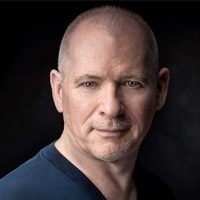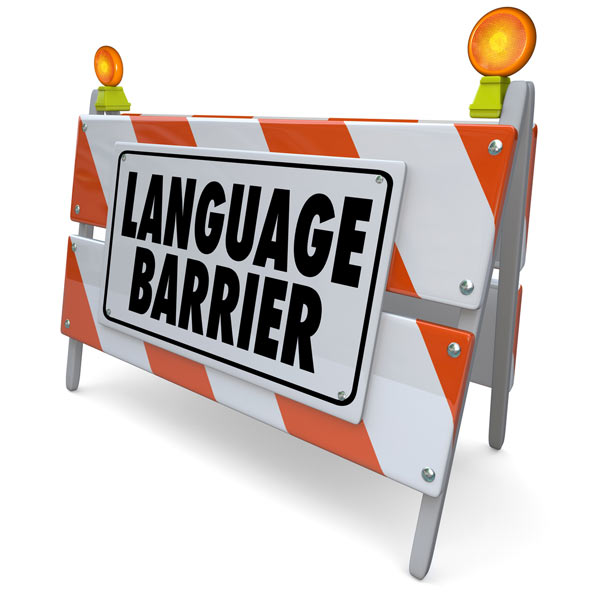“If you speak to a man in a language he understands, it goes to his head. If you talk to him in a language he speaks, it goes to his heart” – Nelson Mandela
Which language a character speaks is something all fantasy world builders must deal with though few have Tolkien’s mastery of inventing them. That’s why most writers identify fictional languages with a label. They describe their dialogue as “Dark Speech,” or “The Common Tongue” whilst writing the words in English. And to be honest, strings of made-up words add nothing to a story’s believability unless they’re part of a working language — like Tolkien’s Elvish, Star Trek‘s Klingon, or Avatar’s Na’vi.
Real languages are a mark of a community’s identity. It defines the outsiders … the us from them. In the real world, social integration is impossible without some grasp of the local language. And nowhere is this truer than in Switzerland! I know this from experience, having moved from the French-speaking region to the “German” speaking zone (note the quotation marks around German … there’s more on this later.)
Switzerland: Small but Diverse
In case you didn’t know it, Switzerland is a confederation of twenty-six republics called cantons — each with its own identity. With only six million people and a landmass half the size of Scotland, it’s a small country with four national languages: German in the north and centre, French in the west, and Italian in the south. There’s also Romansh, a minority language spoken in the east that’s derived from Latin. Cross from one region to another, and both language and culture change. Few towns are truly bilingual, and there is no common tongue.
I could barely speak French twelve years ago when I emigrated to French-speaking Switzerland … just halting, barely remembered high school French. Okay, my accent isn’t flawless, but my French is tolerable now. I can understand what’s said, and say what I want in reply. There are no awkward pauses while I translate in my head, because I think in French when using it.
Last year, I moved just a three-hour drive north to the “German” speaking city of Luzern. But there was one small problem: I didn’t speak a word of German back then.
Don’t get me wrong … many Swiss understand English to some extent, especially the younger generation. But proficiency isn’t universal outside major cities, and many seem uncomfortable speaking English (or any of Switzerland’s national languages apart from their mother tongue). I get that … no one likes to speak a language they don’t use daily. And whilst that’s no big deal when you’re on vacation, it’s a barrier if you live here. Need a plumber or an electrician in a hurry? Have a question about your tax assessment? Can’t find what you’re looking for in an out-of-town store? You’ll struggle if you can’t speak some local lingo!
Not that I’m complaining! I chose to live here, and it’s my job to integrate. In fact, I began German lessons the day I arrived in Luzern. And that’s when I ran into problem number two. Though the French and Italian spoken in Switzerland are the same as the languages spoken in France and Northern Italy, the Swiss don’t speak standard German. They speak a multiplicity of dialects that change from city to city, sometimes village to village. These are known collectively as Swiss German.
Bridging the Language Barrier
Swiss German dialects may be German in name, but the difference from standard German (spoken in Germany) is chalk and cheese. And when I say dialect, I don’t mean the pronunciation is different. It’s speech patterns and intonation, grammar and vocabulary. Swiss German is distinct enough that schoolchildren here must learn standard German as a foreign language. Likewise, Swiss German is unintelligible to most Germans who don’t come from the southwest where similar dialects are spoken.
So, why not learn Swiss German, I hear you ask?
Well, that’s down to problem number three. It’s hard to learn a language that’s not written.
Swiss German is an enigma. Its wealth of dialects was never standardized, and so it remains a spoken language. German-speaking Swiss use standard German when communicating in writing. That means they speak a language they don’t write, and write a language they don’t speak. Confused? Join the club. You never hear standard German spoken here on the streets, but you don’t see Swiss German written in public. What this boils down to is that foreigners must learn two languages … Swiss German for speaking, and standard German for writing.
German-speaking Swiss love their dialects and never, ever speak standard German among themselves. It’s what sets them apart from Germany. It defines their “Swissness.” It says we’re Swiss and not German. But this makes the language barrier tough to overcome. I’ve spent months learning standard German, with its compound words, umpteen articles, three genders, four case endings, its jumbled word order, and I still don’t understand a word that’s spoken around me. You see, even though they understand it, the Swiss don’t seem at ease speaking standard German. Maybe it’s an effort because they don’t speak it every day. After all, there’s a difference between talking and reading speed. Whatever the reason, whenever I talk to people here in standard German, they often reply in dialect.
Maybe one day I’ll develop an ear for Swiss German, though it’s tough to get the pronunciation right if you’re not Swiss born and bred. The joke is that it’s sounds like a cat coughing up a fur ball, but I think that’s unfair. Many Swiss German sounds are pronounced in the back of the throat, but it has a singsong rhythm I’ve grown to like.
Switzerland is a mishmash of languages and cultures that, miraculously, sticks together. Its diversity might bring frustrations, but it also has upsides. There’s real pride in the community and a plethora of local customs and traditions. That’s one reason I love living here, and why I’ll I persevere with my German.

Stephen Chamberlain is the author of the fantasy novel Graëlfire. He draws inspiration from the impact of landscape on myth, and the association of liminality with the supernatural and magic. Stephen lives in Switzerland.



